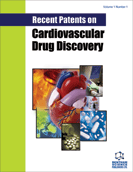Abstract
Vasopressin receptor antagonists are a new class of drugs that address the problems of fluid retention, hyponatremia, and renal dysfunction in heart failure. Elevated vasopressin levels in heart failure cause myocardial fibrosis, hypertrophy and vasoconstriction by activating the V1a receptors, as well as water retention and hyponatremia by activating V2 receptors. Antagonism of V1a receptors alone is of little benefit. In contrast, antagonism of V2 receptors results in increased free water excretion and increased sodium concentration. Vasopressin receptor antagonists may be viewed as the first new class of agents with predominantly aquaretic effects, in contrast to the natriuretic effects of loop diuretics. The predominant action of vasopressin receptor antagonists is water excretion, without depletion of other electrolytes, and less neurohormonal stimulation compared with loop diuretics. Classified as neurohormonal antagonists, vasopressin receptor antagonists acutely may improve congestion and hyponatremia, while chronically preventing progression of left ventricular dysfunction. Several compounds have been evaluated in late-stage clinical trial programs, and at least one may be used as an adjunct to standard medical therapy, combining aquaresis for congestion with neurohormonal antagonism for morbidity and mortality. We reviewed recent patents dealing with heart failure, hyponatremia, anti-diuretic hormone, and vasopressin antagonists.
Keywords: Vasopressin, congestive heart failure, neurohormones, hyponatremia, edema, anti-diuretic hormone, tolvaptan, conivaptan, lixivaptan
 1
1

